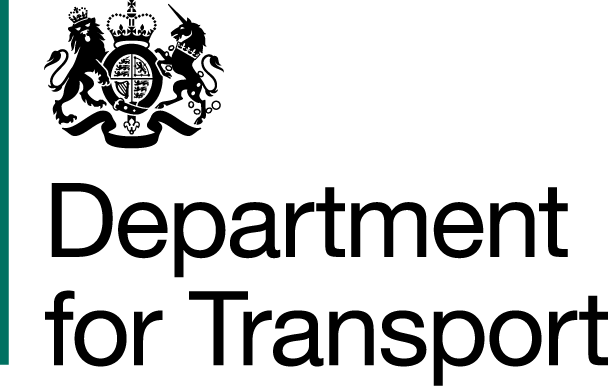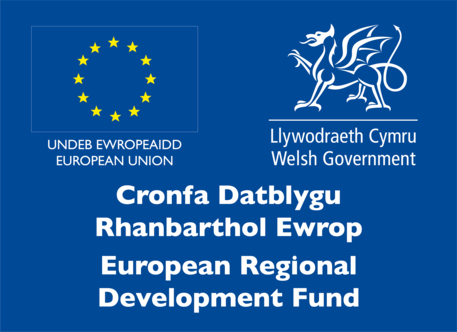Modern Slavery Statement
Purpose
This statement applies to Transport for Wales (TfW) and refers to our strategic approach to managing Modern Slavery.
Our organisation
TfW is a not-for-profit company, wholly owned by the Welsh Government. TfW exists to drive forward the Welsh Government’s vision of a high quality, safe, integrated, affordable and accessible transport network that the people of Wales are proud of. It will also help to change the way we understand, plan, use and invest in transport in Wales.
TfW is key to delivering the Welsh Government’s key themes as set out in Prosperity for All: The National Strategy. The organisation is responsible for procuring and delivering sustainable transport in Wales and the borders through our subsidiary Transport for Wales Rail Ltd and contractual arrangements with our Infrastructure Delivery Partners.
TfW’s registered office address is 3 Llys Cadwyn, Pontypridd, Rhondda Cynon Taf, CF37 4TH.
Definitions
TfW considers that modern slavery encompasses:
- Human trafficking
- Forced work, through mental or physical threat.
- Being owned or controlled by an employer through mental or physical abuse or the threat of abuse.
- Being de-humanised, treated as a commodity or being bought or sold as property.
- Being physically constrained or to have restrictions placed on freedom of movement.
Commitment
TfW acknowledges its responsibilities in relation to tackling modern slavery and commits to complying with the provisions in the Modern Slavery Act 2015. TfW understands that this requires an ongoing review of practices in relation to its labour force and its supply chains.
TfW doesn’t enter into business with any other organisation, in the United Kingdom or abroad, which knowingly supports or is found to involve itself in slavery, servitude and forced or compulsory labour.
No labour provided to TfW in the pursuance of the provision of its own services is obtained by means of slavery or human trafficking. TfW strictly adheres to the minimum standards required in relation to its responsibilities under relevant employment legislation and, in many cases, exceeds those minimums in relation to its employees.
Our policies
TfW has in place or is developing policies on the following:
- Whistleblowing | To report any issues please use the FaceUp website
- Employee Code of Conduct
- Recruitment
- Sustainable Procurement and Supply Chain Management
- Health, Safety & Well-being
- Equality, Diversity & Inclusion
- Grievance
- Ethical Employment
TfW has signed up to the Welsh Government’s Code of Practice on Ethical Employment in Supply Chains (the Code of Practice) and requires strategically important suppliers and their supply chain to sign up to it. All other suppliers to TfW are encouraged to sign up to the Code of Practice. TfW is a Living Wage accredited employer in accordance with the Code of Practice and take action to eliminate the inappropriate use of zero-hours contracts. TfW is also committed to eliminating false self-employment practices, umbrella contracts and union backlisting in accordance with the Code of Practice.
Our supply chains
The main supply chains of TfW currently relate to the delivery of the rail service in Wales and the Borders and construction/engineering work to develop sustainable transport infrastructure. TfW’s first-tier suppliers are intermediary traders and therefore have further contractual relationships with lower-tier suppliers.
To help monitor adoption of the Code of Practice and to specifically address issues relating to modern slavery, TfW has appointed a Head of Supply Chain to help resolve disputes in the supply chain and identify any potential breaches of the Code of Practice. This function will report to the Commercial Contracts Director, and ultimately the Chief Commercial Officer.
Potential exposure
TfW considers its main exposure to the risk of slavery and human trafficking to exist in lower-tier supply chains, such as facilities management services and products procured involving the provision of labour in a country where protection against breaches of human rights may be limited.
In general, TfW considers its exposure to slavery/human trafficking to be relatively limited. Nonetheless, it has taken steps to ensure that such practices do not take place in its business nor the business of any organisation that supplies goods and/or services. Our Head of Supply Chain will play a major role in assessing risk and prioritising actions.
Steps we’ve taken as of April 2023
TfW carries out due diligence processes, including conducting a review of the controls of its suppliers, to ensure that slavery and/or human trafficking does not take place in its organisation or supply chains.
TfW has not, to its knowledge, conducted any business with another organisation which has been found to have involved itself with modern slavery.
In accordance with section 54(4) of the Modern Slavery Act 2015, TfW has taken the following steps to ensure that modern slavery is not taking place:
- Established a Sustainable and Ethical Procurement Working Group to advise TfW on actions needed during the procurement of all TfW contracts, including the rail services and infrastructure contracts.
- Communicated the policy and approach to sustainable and ethical procurement during the bidding process and at all supplier events.
- The Code of Practice of Ethical Employment in the Supply Chain is included at ITT stage of the procurement process, and contracts, and the supply chain is encouraged to sign up. Built sustainable and ethical procurement requirements into procurement, contract management arrangements and associated documentation.
- Our Head of Supply Chain will risk assess expenditure and supply chains, including supplier audits/reviews in terms of sustainability and ethics.
- Ensured that due diligence checks of new suppliers are undertaken and adherence to the Modern Slavery Act 2015 is checked.
- Transport for Wales is now an accredited Living Wage employer.
Assessment of our effectiveness
TfW’s approach to sustainable and ethical procurement has mitigated the risks associated with the supply chain but cannot eliminate them.
Our Head of Supply Chain will work with our delivery partners to ensure that modern slavery does not take place in the supply chain. We continually review and update our processes to ensure that we adequately address the risk of modern slavery in our supply chain.
TfW has ensured that the reporting line through to our Commercial Contracts Director will result in issues being taken to the Audit and Risk Committee.
Forward-Looking Action Plan
Our Chief Commercial Officer will have overall accountability for this area, which will be led and managed by our Commercial Contracts Director. Our Head of Supply Chain and our Sustainability Team will have overall responsibility for this area and will take steps to:
- Review supplier contracts to include termination powers in the event that the supplier is, or is suspected, to be involved in modern slavery.
- Put measures in place to identify and assess the potential risks in its supply chains.
- Undertake impact assessments of its services upon potential instances of modern slavery.
- Create action plans to address risk to maintain processes that reduce the risk of modern slavery in our supply chain.
- Take action to embed and maintain a zero-tolerance policy towards modern slavery.
- Provide training to staff on modern slavery.
- Review our approach to modern slavery annually and monitor its effectiveness and update our modern slavery statement.
- Communicate the Whistleblowing Policy throughout TfW and its supply chain.
- Review the Whistleblowing Policy annually and monitor its effectiveness.
- Provide a mechanism for people outside of TfW to raise suspicions of unlawful and unethical employment practices.
- Ensure that staff involved in buying/procurement and the recruitment and deployment of workers receive training on modern slavery and ethical employment practices.
- Ensure that employment practices are considered as part of the procurement process.
- Ensure that the way in which we work with our suppliers does not contribute to the use of illegal or unethical employment practices within the supply chain.
- Ensure that undue cost and time pressures are not applied to any of our suppliers if this is likely to result in unethical treatment of workers.
- Ensure that our suppliers are paid on time.
- Ask our suppliers to explain the impact that low costs may have on their workers each time an abnormally low quote or tender is received. Assess expenditure to identify and address issues of modern slavery, human rights abuses and unethical employment practice.
- Carry out regular reviews of expenditure and undertake a risk assessment on the findings, to identify products and/or services where there is a risk of modern slavery and/or illegal or unethical employment practices in the UK and overseas.
- Investigate any supplier identified as high risk by direct engagement with workers wherever possible.
- Work with suppliers to rectify any issues of illegal or unethical employment practice.
- Monitor the employment practices of high-risk suppliers, making this a standard agenda item for contract management meetings/reviews.
Key Performance Indicators
TfW is developing key performance indicators, to measure its effectiveness in ensuring that modern slavery isn’t taking place in the organisation or its supply chains.
Slavery Compliance Officer
Our Head of Supply Chain will act as the Slavery Compliance Officer, to whom all concerns regarding modern slavery should be addressed, and who will then undertake relevant action. This statement is made in pursuance of Section 54(1) of the Modern Slavery Act 2015 and will be reviewed for each financial year.
Richard Marwood
Commercial Contracts Director Transport for Wales



